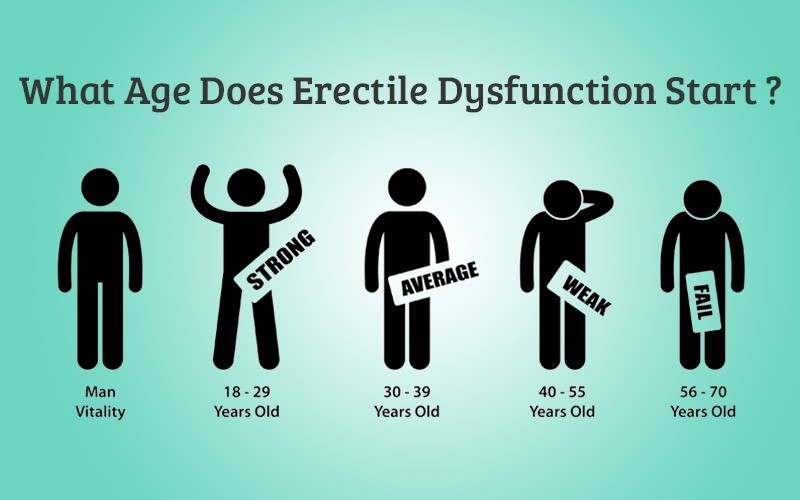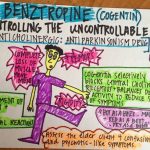
Contents
Can Erectile Dysfunction Become Permanent?
Erectile dysfunction (ED) is a medical term used for impotence. Treatments for ED include lifestyle changes, psychotherapy, medications, devices, and surgery.
ED occurs when a man can’t achieve or maintain an erection for sexual activity. It is not a disease, but rather a symptom of underlying physical or psychological issues.
Occasional ED may be caused by excessive alcohol consumption, anxiety, stress, or tiredness. These situations are normal and nothing to worry about. However, if ED persists for a prolonged period, it is advisable to seek medical attention.
Is there a cure for erectile dysfunction? Or is it permanent? Here is a comprehensive guide on the symptoms, causes, treatment, and more related to ED.
ED is more common as men age. Factors such as hormonal changes, psychological problems, underlying health conditions, and other variables can restrict blood flow to the penis, hindering full erection.
The following are known causes of erectile dysfunction.
1. Health conditions:
Conditions such as type 2 diabetes, heart and artery issues, high blood pressure, atherosclerosis, kidney problems (like chronic kidney disease), multiple sclerosis, Peyronie’s disease (scarring that causes penis curvature), priapism (penis swelling), and hormonal imbalances (such as low testosterone or thyroid hormone) can contribute to ED.
2. Injury:
Injury to the penis, spinal cord, prostate gland, urinary bladder, or abdomen can lead to ED. Treatments for prostate or bladder cancer may also increase the risk.
3. Medications:
Some medications can have side effects of ED, including those for blood pressure, prostate cancer, ulcers, appetite suppression, antidepressants, tranquilizers or sedatives, and eye drops for glaucoma.
4. Psychological or emotional problems:
ED can result from issues such as fear of sexual failure, sexual performance anxiety, general anxiety, depression, stress, low self-esteem, or feeling guilty about sexual performance or activities.
5. Lifestyle factors:
Unhealthy habits like excessive alcohol consumption, smoking, illegal drug use, being overweight, physical inactivity, or sleep problems can contribute to ED. Excessive steroid use is also a risk factor.
6. Other causes:
Poor sexual knowledge, improper sexual techniques, and poor interpersonal relationships can also lead to ED.
What are the symptoms of erectile dysfunction?
Symptoms of ED may include:
- Having an erection occasionally, but not consistently when desired
- Being able to achieve an erection but not maintain it
- Being unable to achieve an erection at all
How is erectile dysfunction diagnosed?
If you are experiencing ED, it is important to consult a urologist or doctor. While it may feel embarrassing, open communication with your doctor is crucial to receive proper treatment.
Diagnosis may involve analyzing your medical and sexual history, physical examinations, mental health assessments, blood tests to identify underlying causes (such as diabetes, hormonal issues, atherosclerosis, or chronic kidney disease), imaging tests like Doppler ultrasound to measure blood flow in the penis, nocturnal erection tests to monitor erections during sleep, and injection tests to evaluate erectile strength and duration.
Can erectile dysfunction be cured?
ED, being a symptom, can be effectively treated. Treatment options include:
Lifestyle changes:
Adopting healthier habits like quitting smoking, reducing alcohol consumption, engaging in physical activity, maintaining a healthy body weight, and avoiding illegal drugs can help prevent and alleviate ED. Seek medical guidance if changes seem challenging.
Psychotherapy or counseling:
Psychological or emotional issues contributing to ED can be addressed through therapy, which may involve involving your partner in sessions.
Medication adjustments:
Medications causing ED can be adjusted by your doctor, either by changing doses or recommending alternative options. Do not stop taking medication without medical advice.
Oral medications:
Prescribed oral medications like sildenafil (Viagra), vardenafil (Levitra), tadalafil (Cialis), or avanafil (Stendra) enhance blood flow to the penis, aiding in achieving and maintaining an erection. Testosterone replacement therapy may be prescribed for individuals with low testosterone levels.
Injections or suppositories:
To achieve stronger erections, alprostadil injections into the penis or alprostadil suppositories may be prescribed.
Vacuum devices:
Some doctors may recommend using a vacuum device to pump blood into the penis and induce an erection.
Surgery:
Surgery is typically reserved as a last resort. It may involve implanting a device for penile erection or reconstructing arteries to improve blood flow. Consult your doctor to determine the suitability of surgery.
Considerations
ED treatments, especially oral medications, may have side effects, particularly when used with alpha-blockers for prostate enlargement or testosterone therapy. Consult with your doctor, disclose your medical history, and discuss potential risks before starting any treatment for ED.
References:
Better Health Channel: "Erectile dysfunction."
Johns Hopkins Medicine: "Erectile Dysfunction."
National Institute of Diabetes and Digestive and Kidney Diseases: "Definition & Facts for Erectile Dysfunction," "Diagnosis of Erectile Dysfunction," "Preventing Erectile Dysfunction," "Symptoms & Causes of Erectile Dysfunction," "Treatment for Erectile Dysfunction."
University of Rochester Medical Center: "Erectile Dysfunction (Impotence)."


